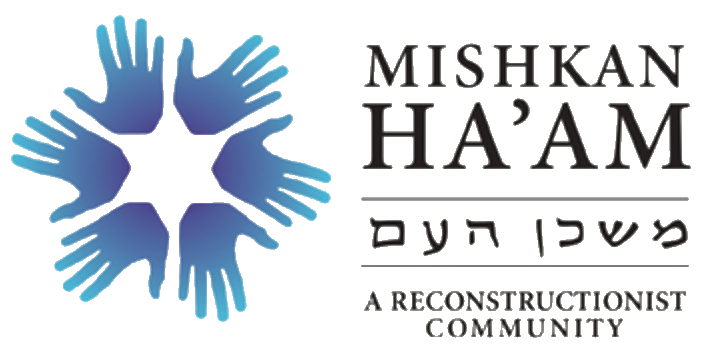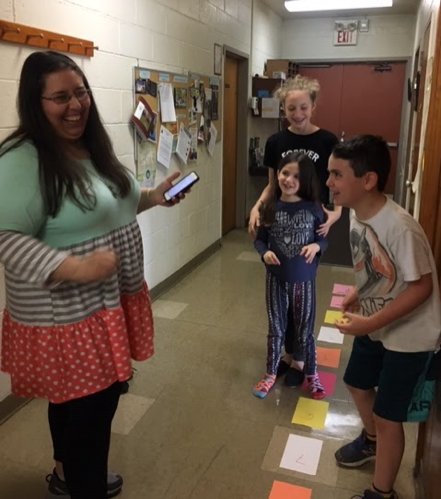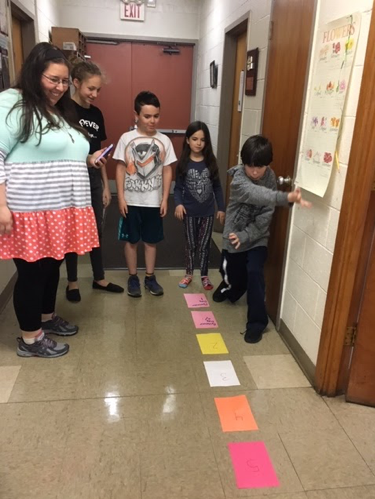She’arim, School Calendar 2023-2024
School Mission
She’arim is a community of multi-aged learners with a mission of engaging Judaism as a portal: for creativity, for meaning-making, and for personal agency. Our name means “gateways,” and we offer transformative Jewish life experiences that allow our children to access a gateway to a connection to Judaism. We do so through a variety of soul, mind, and body-focused modalities.
School Values
She’arim is a community in which relationships play as important a role in learning as facts. She’arim values the close-knit community of students and their families – She’arim is like one big family, and that closeness is one of its great assets.
Along with Judaism and family, She’arim believes it is ultimately important for children to have an enjoyable and meaningful time while engaging with their Jewish community. Beyond any facts and words a child may learn in She’arim, we want to impart a love of Mishkan Ha’am’s community and a love of being Jewish.
She’arim meets once a week, on Thursdays, from 4 PM – 6 PM and once a month on Shabbat (Saturday) from 10 AM – 12 PM.
She’arim is not like school; it is like camp.
Judaica
Our Judaica curriculum is a combination of experiential learning and a Project Based Learning model. At the start of each 2-3 week unit, students choose a project from a packet of choices: artistic projects (painting, ceramics, mosaic making), social justice projects, cooking and baking projects and more. Students work in pairs or small groups. All projects are based on Jewish texts such as Torah, Talmud, prayer, and contemporary Jewish writings. All projects are highly creative.
Some School projects examples:
- Studying Pirkei Avot 6:1 which discusses ten things created on the eve of the first Shabbat at twilight, looking in Tanach/Jewish Bible for all those references, and then creating those ten items as cake art
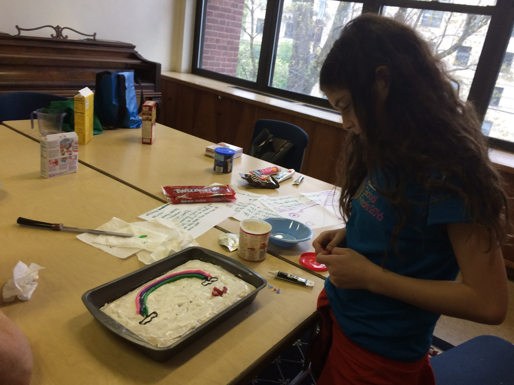

- Studying the fact that Moses, the leader of the Israelites as they escaped Egyptian slavery and wandered in the desert for 40 years, who (according to Torah) came closer to God than anyone else, had special needs (a stutter) in honor of Mental Health Awareness Month, creating a handout about the importance of taking care of those in our community with mental health issues in honor of Moses, and baking and selling cupcakes whose proceeds are donated to the National Alliance on Mental Illness.
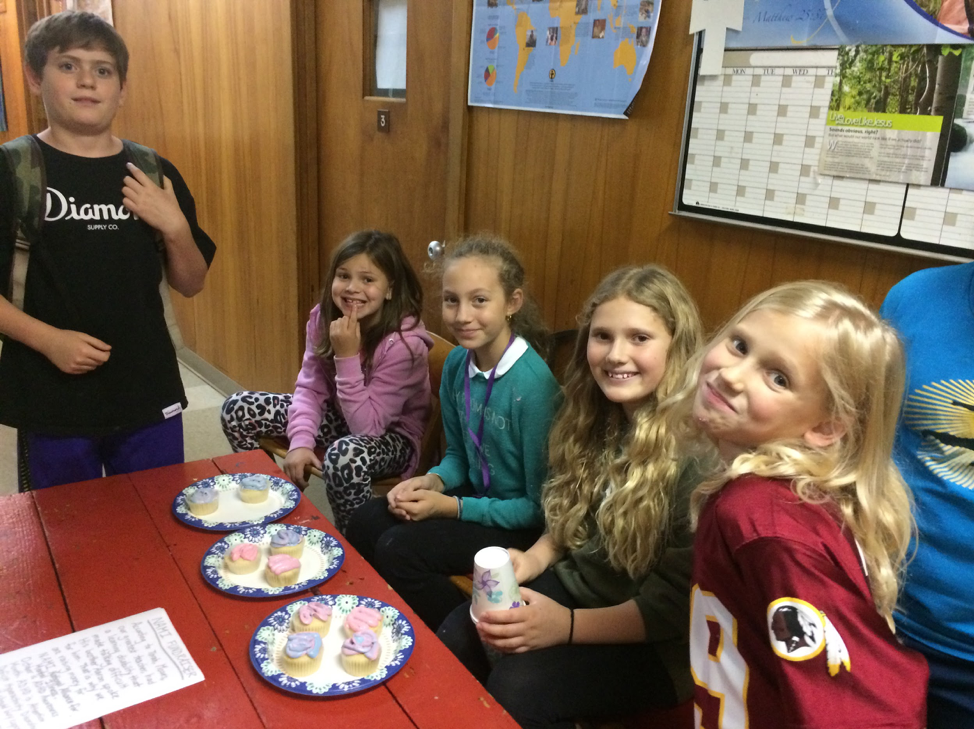
- Playing a Jewish trivia based board game in which we are the pieces and we have to get from the first Passover Seder through the 49 days of the Omer to Shavout.
During our 2019-2020 year, we are making our very own podcast! Each She’arimer is making episodes about topics about which they are passionate such as video games and Jewish community, climate change and Jewish values, and more! She’arimers will conduct interviews with people both in and outside the congregation who are experts in their topics. Each episode will be in the form of a story. Check back here and on Mishkan Ha’am’s Facebook page for regular postings of our episodes!
Hebrew School
The rest of our Hebrew studies focus on finding meaning in prayers. We use a curriculum called “Hebrew in Harmony” which focuses on music. Students listen to a variety of traditional and contemporary melodies in order to deepen their experience of the meaning of the prayer. In the end, along with the ability to read a prayer, students start to have a relationship with each prayer.
Our beginning Hebrew students study the Alef Bet with a wonderful interactive program called Alef Bet Quest. This program tells the story of two kids traveling through Israel. In the classroom, students use a Hebrew workbook. At home, this is supplemented with online video games based on the workbook.
Tefillah (Prayer)
Each week, our students engage with Tefillah through a Prayer Discussion. In Tefillah, more than just going through the prayers, we find entry points – ways to enter in and connect to the prayer that are personally meaningful.
We start each year with a game that helps us to determine our “spiritual type” as described by theologian Corinne Ware. After this, when we discuss prayers together, time is dedicated to each of those types. We might chant a prayer for the Mystics, study an interesting aspect of a prayer for the Head group, sing a beautiful melody for the Heart folks, and bring in a concrete way to make the world a better place for the Social Justice oriented among us.
Rather than having a traditional prayer service each week, we engage in Prayer Discussions. We look at the text of a particular prayer, recite it together, and discuss its deeper meaning. The goal is to uncover our evolving relationship with each prayer. For example, we might read the Mi Sheberach prayer and then discuss how we feel about praying for healing. She’arim is a safe space to explore our feelings and thoughts about all spiritual matters.
